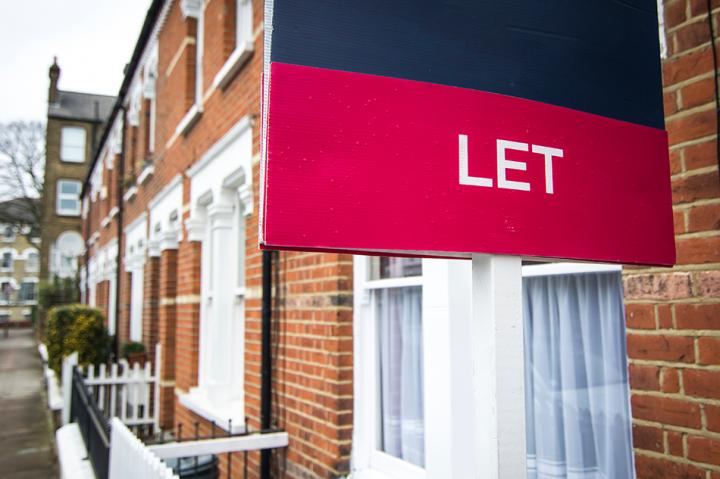The Renters’ Rights Bill is introduced to Parliament

Sarah Barratt, partner in our real estate dispute resolution team, discusses what you need to know about the new Renters’ Rights Bill.
What does the Bill set out to achieve?
The new Government has now introduced the Renters’ Rights Bill to Parliament, following its manifesto pledge to abolish s21.
The Bill essentially looks to reform the rental sector as we know it. It is anticipated that it will make relatively swift progress through the various Parliamentary stages in order to make its way on to the statute books.
Here are some of the main things to be aware of.
1. Assured tenancies
- Assured tenancies will be periodic with the periods being not more than 1 month. This will do away with fixed-term assured tenancies;
- Assured shorthold tenancies will be abolished (and with it s21);
- The notice period for possessions based on ground 8, 10 and 11 (rent arrears) will be increased to 4 weeks, from the current 2-week period;
- Some of the new grounds for possession will have 4-month notice periods;
- In considering possession on ASB-related discretionary grounds then the court must take into account whether the tenant has co-operated with the landlord to encourage the conduct complained of to stop;
- Tribunals will determine rent increases for private and social housing tenancies, but the procedures will be slightly different;
- There will be an implied term allowing a tenant to keep a pet, subject to certain conditions;
- A written statement of the tenancy terms will generally be required;
- New offences are created, including if the landlord seeks to rely on a ground for possession when they do not believe that they would be able to obtain an order for possession based on it, and the tenant surrenders the tenancy without an order for possession being made;
- Tenant’s notice must be 2 months (unless otherwise agreed), can be given by any means, and may be withdrawn with the landlord’s agreement.
2. Tenancies that cannot be assured tenancies
Certain tenancies will not be assured tenancies, including tenancies of more than 7 years (There are transitional provisions so that in the case of tenancies where proceedings have been commenced, or could be commenced as a valid notice has been served, the tenancy remains an assured tenancy).
3. Discrimination in the rental market
Landlords cannot discriminate against tenants with children or who are in receipt of benefits.
4. Stating the proposed rent and rental bidding
The proposed rent must be stated in advertisements for letting, and prospective tenants must not be invited or encouraged to offer more.
5. Miscellaneous
S10A Landlord and Tenant Act 1985 (Awaab’s Law), which sets out provisions relating to the remedying of certain hazards by social landlords, will be extended to all landlords and to properties let under licence.
6. Landlord redress schemes
There is power for regulations to be made requiring landlords to be members of a landlord redress scheme.
7. Landlord database
Provisions are included relating to a database of landlords, rented properties, and landlords with banning orders or who have been convicted of certain housing related offences, or who have had financial penalties applied.
8. Decent Homes standard
A Decent Homes Standard will apply to all assured tenancies.
9. Enforcement
Powers of enforcement are given to local authorities and a range of new offences are created.
There are new grounds for possession including:
- Where the landlord wishes to sell the property;
- Where a superior lease ends;
- In relation to some student accommodation;
- If the property is required for occupation by agricultural workers;
- For social landlords where the property is required for people in connection with their employment;
- Where employment ends (this will become a mandatory ground, rather than the current discretionary ground);
- Where the property is required for supported accommodation;
- Where the property is let for supported accommodation but support is no longer required, or funded, or does not meet the tenant’s needs etc.;
- A new discretionary ground where the tenant refused to co-operate with the provision of support services;
- Where the tenancy was granted for homelessness duty;
- Stepping stone accommodation where criteria are no longer met;
- If possession is required to allow compliance with enforcement action;
- The mandatory ground for rent arrears has its thresholds increased so that 13 weeks’ rent (for a weekly tenancy) or 3 months’ rent (for a monthly tenancy) will be required and rent unpaid because a benefit payment is awaited will be disregarded.
Tenancies where proceedings have been commenced, or could be commenced, pursuant to a valid s21 notice having already been served, will continue to be assured shorthold tenancies until the notice becomes time barred or the proceedings are concluded.
There will be a longstop date of 3 months after the commencement date in order for possession proceedings to be commenced pursuant to a s21 notice.
Tenancies where proceedings have been commenced or could be commenced pursuant to a valid s8 notice having already been served, will not be affected by the amendments made until the proceedings are concluded or the notice ceases to be valid.
Again, there is a longstop period of 3 months after commencement for possession proceedings to be issued pursuant to any s8 notice.
What’s next?
We shall have to wait and see whether any amendments are made which change these requirements as the Bill makes its way through Parliament.
As the Bill is expected to come into force by summer 2025, if you require any advice in respect of your current tenancies, then please do not hesitate to contact Sarah Barratt using 0191 211 7923 or [email protected].
How to resolve landlord and tenant disputes
Sarah Barratt, partner in Muckle's real estate dispute resolution team, gives her top tips on resolving landlord and tenant disputes and even preventing them in the first place.
Watch VideoAll Videos
